Thoughts on Professional Development During the Pandemic: Focus. Plan. Do!
By Bruce Griffiths and Laurel Marshall
We noticed that for many of us this time quarantined at home has provided found time to devote to personal growth. But COVID-19, recession, and social unrest have certainly presented a host of challenges to clear thinking and thoughtful plans. To help reflect on best practice, and compose this article we’ve enlisted the aid of coach, colleague, and friend, Laurel Marshall. We would also like to thank our Canadian comrade and strategic partner, Bob Power, for his read and review. Our complete article is included as an attachment but here are the elements we agreed were absolutely essential to any good professional development plan.
1. FORMAL PLAN
Pull those great ideas out of your head and write them down. Science suggests we encode goals in our brain, create clarity, and are more likely to achieve success, when we write down our developmental focus, actions steps and other key elements. Winging it won’t work.
2. DIAGNOSE USING A COMPETENCY MODEL
Objective feedback using an ideal state as a template is needed to reliably identify a developmental need.
3. FOCUS
Chose only one or two specific areas to work on at a time. Focus and attention enables progress and behavior change.
4. IMAGINE A PREFERRED FUTURE
It’s a good idea to visualize perfect execution, i.e., create and rehearse a mental rendition of your new competence, what it looks and feels like. Create your preferred vision of successful performance.
5. SET GOALS
Goals, milestones, checkups along the way are absolutely necessary. They are touchstones to measure progress and alert your key supporters when it’s time for feedback.
6. IDENTIFY YOUR MOTIVE
“What’s in it for me?” (WIIFM) and “how will I feel” when I achieve the goal is super important. You need persistent motivation to sustain development over time.
7. ENLIST A SUPPORT GROUP
It does take a village to grow. Having mentors, coaches, supporters on your team is important – for feedback, emotional support, and accountability. Enlist a Community of Champions; surround yourself with a team of accountability partners.
8. BUILD ACTION STEPS
To truly grow you need to take focused action, i.e., schedule formal learning (workshops/books/webinars/etc.), schedule on-the-job experiences (projects, skill practices, etc.), solicit feedback and coaching (mentors, coaches, colleagues, and friends).
9. LIST POSSIBLE OBSTACLES
It is important to stay positive and focus on building a new set of skills and habits, but the change literature suggests that identifying possible challenges in making the needed change can help in preparing to overcome them, and manage expectations along the way. A growth mindset, focusing on ideas & solutions to overcoming obstacles is key!
10. CELEBRATE SUCCESS
Win every day! Recognize and acknowledge yourself for achieving small inspired actions toward achieving your desired state.
In sum, if you are truly serious about personal growth then you must be serious about planning to improve. This means putting in place a formal plan with accountability.
© 2020 Organization Systems International and BeInspired Coaching & Consulting
For more information about Polaris® please contact OSI at 858.455.0923 or email Crystal Matsuura at cmatsuura@orgsysint.com.
If you have comments or experiences, please share with OSI!


